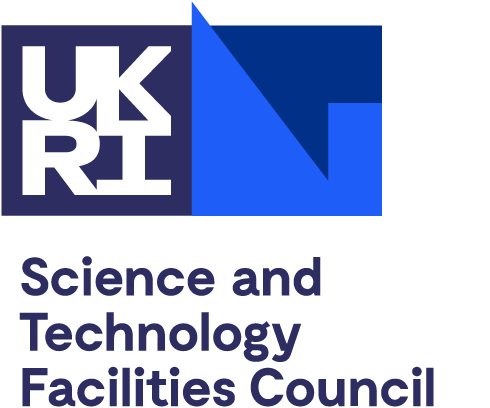Some proposals include resources provided by Project Partners. Resources to be provided by any Project Partners, whether in cash or in-kind contributions, should be clearly identified in the proposal. STFC will pay around 80% of the total costs of the project (depending on whether there are any Associated Students and on the level of its contribution to any equipment) excluding the Project Partner contribution. Project Partner contributions in cash or in-kind should be seen as additional to the Research Councils’ % contribution and are not considered part of the fEC of the project. All project partners named on a proposal must provide a letter of support.
Applicants must ensure that they have obtained the permission of any other person named on the proposal form (for example any Co-Investigators or Project Partners) for the provision of their personal information to UKRI and the processing of their data by UKRI for the purpose of assessing the application and management of any funding awarded.
A Project Partner is a third party person who is not employed on the grant, or a third party organisation, who provides specific contributions either in cash or in kind, to the project. Entitlement to the outputs of the project and/or Intellectual Property will be determined between the parties involved, however any access to project outputs and/or IP must be in line with any relevant Subsidy Control regulation. As a rule Project Partners are expected to provide contributions to the delivery of the project and should not therefore be seeking to claim funds from UKRI. However, where there are specific circumstances where Project Partners do require funding for minor costs such as travel and subsistence, this will usually be paid at 80% fEC unless otherwise stated by us; note that any applicable Subsidy Control regulation and HMRC guidance will also be taken into account which may affect the percentage of these costs that we will fund. These costs should be outlined and fully justified in the proposal and will be subject to peer review.
UKRI Head Office Staff acting in their capacity as a UKRI employee are not eligible to be Project Partners. Organisations that are applicants on the project, including non-lead applicant organisations, cannot also be a project partner.
A Subcontractor is a third party individual who is not employed as staff on the grant, or a third party organisation, who is subcontracted by the host organisation to deliver a specific piece of work. This will be subject to the procurement rules of the host organisation. All costs that support the delivery of the subcontract are eligible and will be paid at 80% fEC unless otherwise stated, these should be outlined and fully justified in the proposal and will be subject to peer review. Entitlement to the outputs of the project and/or Intellectual Property will be determined between the parties involved, however any access to project outputs and/or IP must be in line with any relevant Subsidy Control regulation.
Collaborator: Do not have an official role/descriptor of “Collaborator” as this is a word often generically used in relation to a project, therefore this could lead to confusion. Instead, the term “collaboration” should be used in the generic sense to explain that there is a project relationship or interaction, accompanied with an official project role descriptor of Project Partner, Sub-contractor, PI, Co-I etc. to explain the nature of the collaboration.
Dual Roles
An organisation or individual can act as both a Project Partner and Subcontractor, however this must be fully justified and will be subject to peer review.
This enables the organisation/individual to receive recognition as a Project Partner for the elements of their contribution to the project that is in an integral or meaningful capacity, which they wouldn’t get if they were needing to be included only as a subcontractor. As a rule we would expect project partner related costs to be minor, where the project needs work to be undertaken that is more significant and includes costs other than travel and subsistence, then the organisation/individual to be contracted may need to be included as both a Project Partner and a Subcontractor. An example of where dual roles might be required is when an organisation or individual is giving to the project in kind, but are also selected to deliver other work to the project involving non-minor costs to be covered via a subcontract.
Last updated: 14 October 2021


